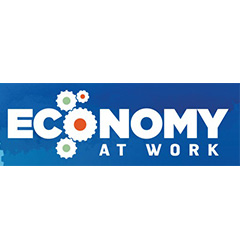Canada’s budget season really got underway in the last week of March, with the three provinces of Alberta, Quebec and New Brunswick tabling their budgets. These recent budgets all feature a return of austerity: not the type of immediate deep cuts they had warned about and that have hobbled European countries, but more of a slow neo-liberal bleed that will restructure their states and contribute to stagnant economic growth.
Hurtin’ Albertans. Corb Lund and his Hurtin Albertans band may sing about Albertans with too much oil money and not enough booze, but they’ll have less of both this year. With an election expected soon, Alberta’s budget tabled on March 26th may be seen as more smoke than substance and not as dire as predicted, but it still picks the pockets of public sector workerswhile doing little to increase the province’s revenues with progressive taxes.
Although 70 per cent of Albertans said the government should increase corporate taxes, the government left them off the hook again. Taxes were increased on fuel, tobacco, alcohol, insurance premiums, through a health care levy and with a very gradual increase in income taxes for higher incomes. While the move to a slightly progressive income tax may be significant symbolically, it comes far short of what they could and should have done. Increasing revenues to just the rate of the next lowest taxed province would provide over $10 billion, twice the size of the deficit.
Meanwhile the budget includes absolute cuts to public spending that represent the equivalent of $1.9 billion this year in real terms and double that in two years. This will lead to job cuts of 1,700 in Alberta Health Services and about 240 in education as well as cuts to environmental programs, seniors drug benefits and municipal programs. We can expect more significant cuts following the election.
Je me souviens: Couillard cuts corrode Quebec. Just as Stephen Harper claimed Canadians wouldn’t recognize the country after he was finished with it, memories may be all that remains of Quebec’s progressive state if Premier Phillippe Couillard continues to proceeds with his neo-liberal reforms.
While the budgets of Alberta and New Brunswick include some nominal progressive tax measures along with their cuts, Couillard’s course is unapologetically neo-liberal and follows that standard game plan, as l’Institute de recherche et d’informations socio-economiques (IRIS) explains. The first stage involves creating alarmism about the deficit and claims that public programs are unsustainable, institute extensive cuts to public services and suppress wages. Then as the economy slows and incomes wane but the budget is balanced, claim that tax cuts are needed to increase competitiveness, get the economy moving again and to provide relief to the middle class (coincidentally just before an election). And then start the cycle again as tax cuts eat into public finances.
Couillard is doing this on an accelerated schedule in Quebec. Although elected less than a year ago, this is already their second budget. Their first budget last fall created massive alarmism about the deficit to convince Quebeckers they are living beyond their means and public programs are unsustainable. It was quickly followed by the Robillard spending review commission which proposed cuts of over $2 billion (even though Quebec already has the lowest public program spending per person in Canada). Then shortly before the budget the Godbout tax reform commission unveiled their plans to reduce income taxes while increasing more regressive taxes and user fees.
This budget doesn’t have as big visible bites as they had barked about, so opponents will be disarmed, but there are numerous small bites more in the mold of Harper designed to dismantle public programs. It also includesanother round of spending cuts to health and education that will primarily be executed through wage cuts to public sector workers and restructuring of pensions.
Setting the stage in New Brunswick. New Brunswick’s Budget tabled on 31 March increased taxes on top incomes by hiking rates on those with incomes over $150,000 and increasing taxes on gasoline and diesel fuel. However, it also squeezes spending, with almost zero growth in health care spending, a freeze on support for post-secondary education, higher fees for seniors. They are also cutting public services, such as courts and government service offices, in rural areas where there is already high unemployment — and have signalled that rural schools and hospitals are on the chopping block.
The Liberal government plans to reduce the number of public sector workers, mostly through retirement and attrition, and is also planning sales of public assets and additional P3s. Its forecasted deficit at $477 million for this year appears exaggerated and designed to set the stage for additional cuts and “reforms” in next year’s budget.
All content: Toby Sanger, Economist, CUPE National. @toby_sangertsanger@cupe.ca
Read original: here


